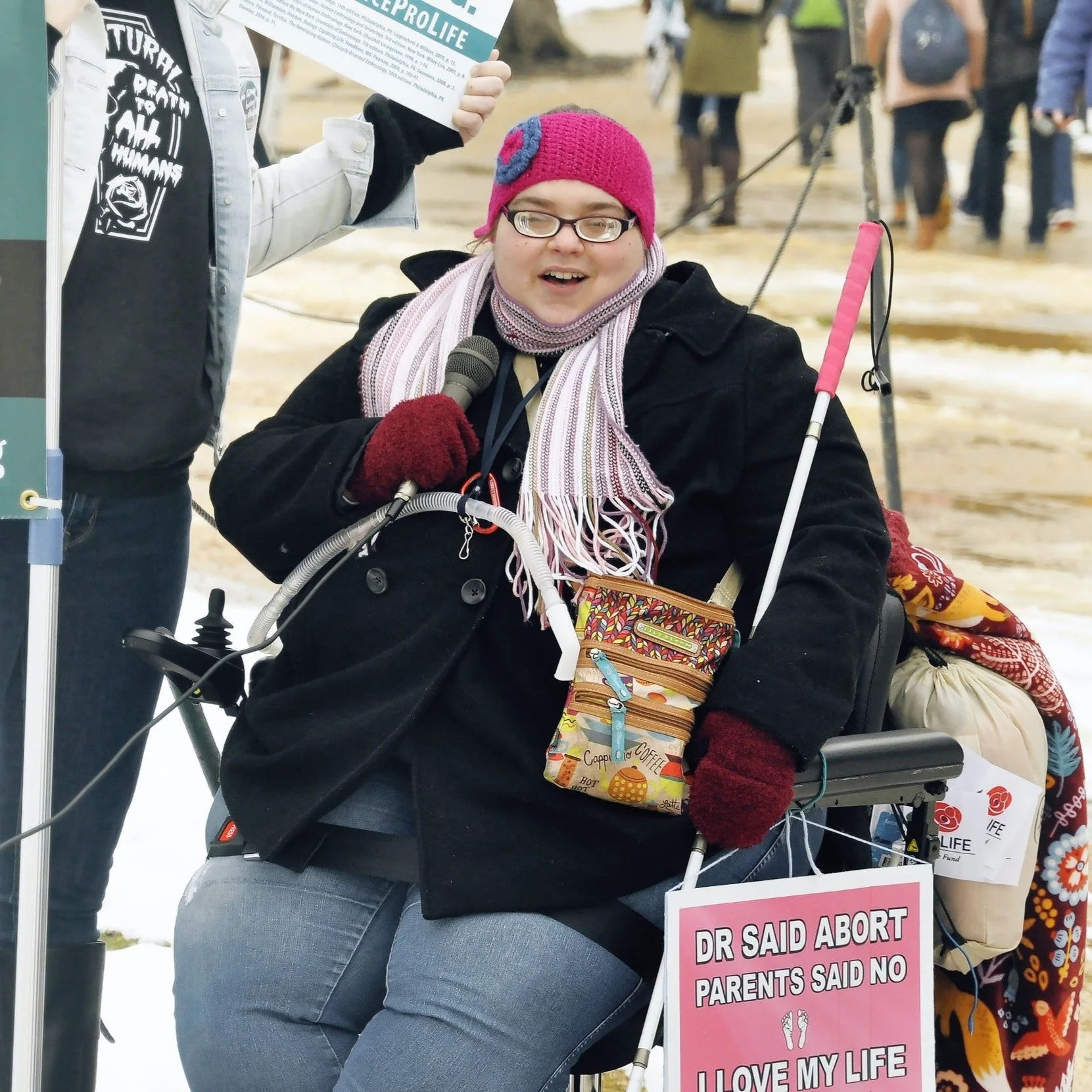The future of the disability rights movement has both challenges and opportunities. As I look to the future, preparing the next generation of advocates becomes paramount in continuing the fight for equality and inclusion. In today’s blog post I explore why mentoring disabled youth is so important and suggestions for empowering them.
Read MoreA few weeks ago, when I was making the rounds on Twitter, I commented on a tweet about COVID without really thinking. The tweet was about the levels of exposure you would risk during this time of the pandemic, specifically eating out at a restaurant. I quipped something to the effect of, "No thanks, I don't want a vent with my soda and side of fries."
Read MoreThe other day, I was scrolling through social media and came upon a post about a new children's book called We Move Together by authors Kelly Fritsch, Anne McGuire, and Eduardo Trejos. The 40-page hardcover illustrated picture book is full of themes of inclusion, tolerance, and celebration of diversity.
Read MoreSometimes change happens in the in-between times. In the quiet moments. When you stop and listen more than you talk. I know these interactions seem few and far between these days. With social media amplifying polarizing points of view, it sometimes feels like the whole world is just screaming past each other. How can that leave room for growth, reflection, and true coalition-building?
Read MoreI gave up on subscribing to practically all magazines a couple of years ago, but one subscription I am glad I kept is New Mobility Magazine. If you aren't familiar with New Mobility, it is a monthly magazine available online and in print. I prefer the print version.
Read MoreThe overarching narrative in society is very ableist and often portrays disability with very negative stereotypes. While the truth is, there are some challenges to being disabled, there are also positive aspects of disabled life that need, and should, be celebrated. This blog post attempts to shed light on some of these ideas.
Read MoreLet's talk arts and crafts! Extra time being at home during the shelter-in-place periods of the pandemic gave me the time to work on some projects that had been on my to-do list for years—one of these projects combined two of my favorite things: crafting and advocacy. My idea was to customize my Pride Go-Go mobility scooter into a rolling billboard that visually expresses different advocacy and social justice themes.
Read MoreWe have all probably lived this ableist moment at one point in our lives. When one of our non-disabled besties says, "Yeah, ya know, I don't even think of you as disabled." Hmmm, let's unpack that for this blog post. The incident I am referring to happened when my friend and I were out shopping one afternoon, and she was driving.
Read MoreIntersectionality and disability are intertwined narratives that highlight the compounded challenges faced by individuals at the crossroads of multiple marginalizations. This blog post explores these intersections and outlines suggestions for more inclusive advocacy.
Read MoreAccurate and diverse representation of disabled individuals in media is more than just a matter of fairness—it's a powerful tool for changing societal perceptions. Explore how positive portrayals in movies, TV shows, and literature can shift the narrative and foster a more inclusive world.
Read MoreDeep in the halls of academia across the country, Disability Studies scholars and sociologists debate and discuss what it means to live a disabled life in today's society. To help frame these conversations in a specific or relative context, they have created what are called Models of Disability. As this article by Disabled World outlines, there are several models.
Read MoreIt's hard to underscore the importance of the personal testimonies of the Discrimination Diaries that lead to the passage of the Americans with Disabilities Act. Just hearing statistics and third-person references about being disabled isn't the same thing as hearing what living with a disability is like, directly from someone living it.
Read MoreYou have probably noticed in posts throughout my Love Disabled Life blog that I often write "disabled people" rather than "people with disabilities." This is known as "identity-first" language and not "person-first" language. Identity-first language embraces disability as the identity of who a person is. The same as a person would do if they were referring to themselves racially or ethnically.
Read MoreA significant part of my identity is that I am disabled. This is not a newsflash to those of you who know me. In fact, you may be thinking, "This is the big revelation? Who cares." That's kind of true. One look at me, and you can easily see that I am disabled. Unfortunately, disability is a term that often becomes a label that concludes a inaccurate or negative value judgment or assessment of ability.
Read MoreThis is the question I'm asking myself: do you have a pride movement without a society asserting (in overt and subtle ways) that you have nothing to be proud of? Did the disability pride movement evolve out of a genuine place of self-love and self-acceptance? Or rather, out of protests by disabled people to prove they have worth in a world that can't begin to understand what that worth could be?
Read More














